
Please install a more recent version of your browser.
29 April 2021
7 minutes read
Gemma O'Brien
In the book Creatives on Creativity, which has just been published, creative director Steve Brouwers goes into conversation with 44 creatives from all over the world. They talk about their childhood, their creative process, their inspirations and their most memorable achievements. We asked five creatives from the book two identical questions. Now you can find their remarkable answers in our article.
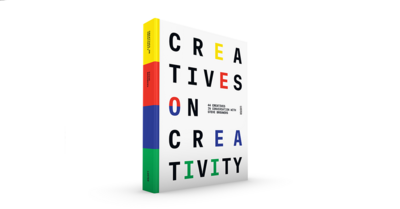
In the book you can read interviews with amongst others Stefan Sagmeister, Mr. Bingo, George Lois and Pixie Pravda, but also native creatives such as Sammy Slabbinck, Anne-Mie Van Kerckhoven and Charline Tyberghein. The book has been designed by Paul Boudens and published by Luster. You get a discount of 10% when using the code 'FLANDERS DC'. Get your copy of Creatives on Creativity here.

Erik Kessels
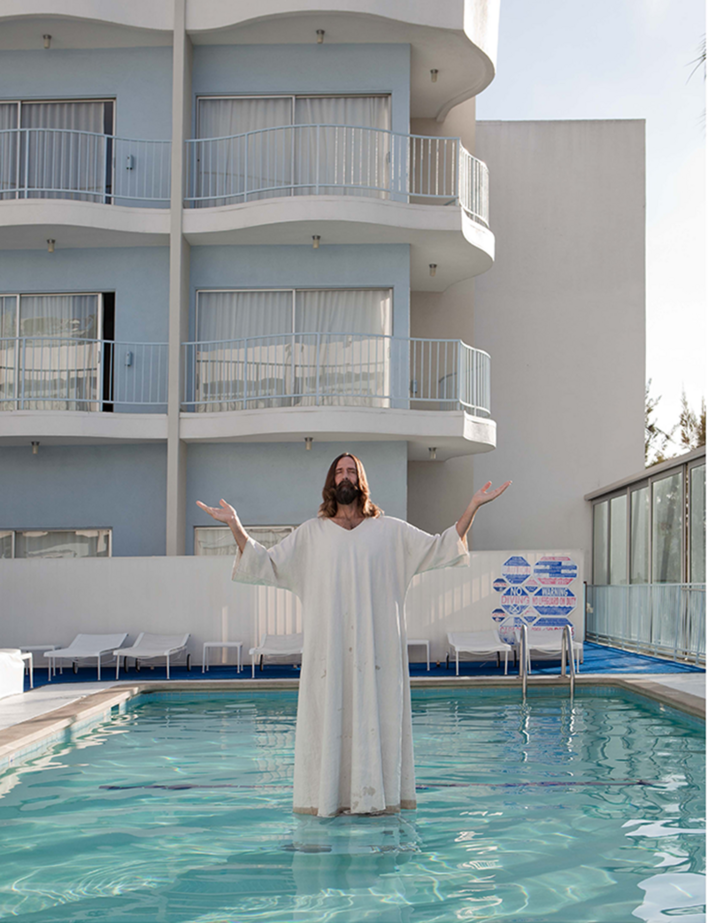
campaign Standard Hotel
Erik Kessels is an artist from the Netherlands and creative director of KesselsKramer.
What does creativity mean to you? “Perhaps creativity can be best described as trying to be different in a certain way and doing things differently. In this sense, creativity is something that really stands out from everything else we see. Creativity is also a bit decadent, I think. Nobody expects it, nobody ever asked for it, but suddenly it appears and it touches people. People often say that creative ideas tend to be better when the economy is doing badly or there’s a recession, but I completely disagree. I think creativity is much better when the economy is doing very well, because it creates a moment where everything is possible, which provides a base for the craziest ideas or the best type of creativity.”
What’s the best piece of advice you’ve heard and repeated to others? “The best advice that I can give to people starting out, is that it’s very good to say no a lot. “No” to the stupid ideas you come up with, but also “no” to certain projects that you are offered. When you start your career or your own business, it’s very important to be precise about what you will and won’t do. The work you create in the first two or three years of your career will always stay with you, because that is the foundation of your portfolio. If you create fantastic work in the beginning of your career and you are very strict about what you will and won’t do, then you’ll build up a very strong creative base and people will come to you for the right reasons. You’ll get new jobs based on the kind of jobs you did before. If you do lots of shit jobs the first two years, you will be surprised at how many more bad jobs you’ll get, because people don’t know what you stand for. So, my advice is that it’s actually more important to say no than it is to say yes.”
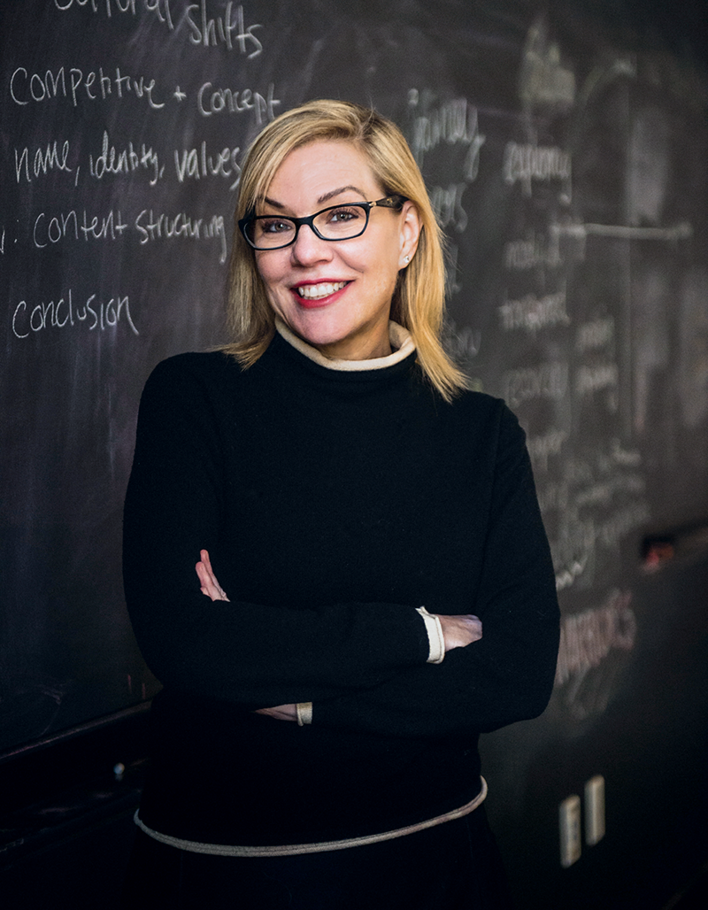
Debbie Millman
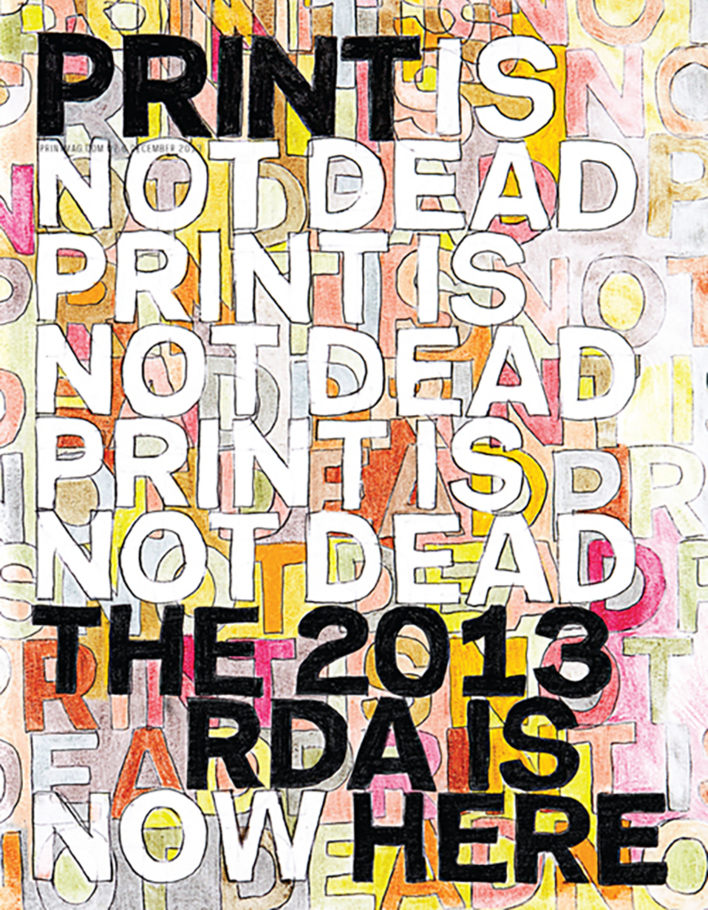
cover for RDA
Debbie Millman is a designer, author and educator from the United States and host of the podcast Design Matters.
What does creativity mean to you? “Making things. I have different environments where I can execute things. It might be in my studio at SVA or in my house where I have a studio. I also like to work on my bed because it is very big, and I have a lot of room to spread things out. It can also be on a chair with my iPad, but it all starts in my mind: what I have thought about and want to articulate, either visually or verbally.”
What is the best advice you’ve gotten and still repeat to others? “Anything worthwhile takes time. We are living in an age where you see so many people become successful before they turn thirty, and now there is often an expectation that everyone should do that. And if they don’t, they will live a mediocre life. I think that I am evidence of that not being true. Being thirty years old was one of the lowest points in my life: I was getting divorced, I had no permanent place to live, I didn’t have a job. It was difficult at the time, but I think if you want something badly enough you just don’t give up until you get it. In the grand scheme of things, my desire and my longing for a better life was stronger than my shame of what I had not accomplished.”
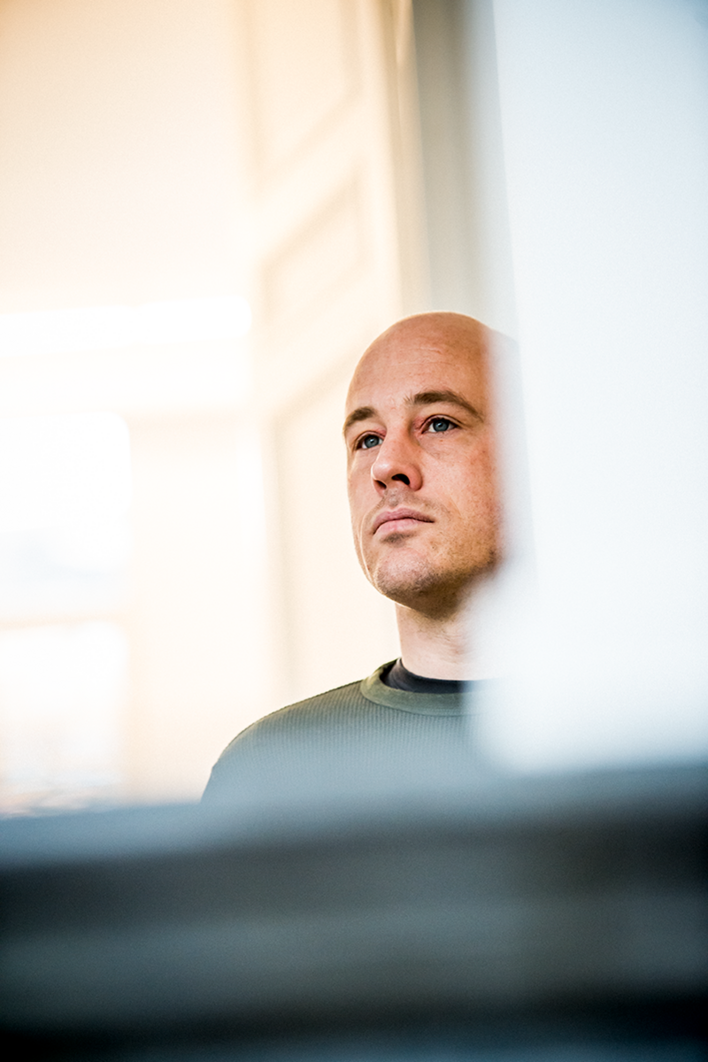
Matt Clark

Blueprint
Matt Clark is an artist from the United Kingdom and founder of United Visual Artist.
What does creativity mean to you? “Joseph Beuys once said that ‘Every man is an artist’. I agree with this idea. Every man and every woman is born with creative ability; it’s what makes us human. It’s just that some people decide to make a living from their creativity, and others are unconscious of their potential. Most people are creative in their everyday life; you have to decide what clothes you wear, what food you are going to eat and how best to get through the working day. Then there are things like social media; the age of Instagram has given birth to a billion curators! Creativity probably emerged as a necessary means for survival. We evolved to express ourselves to attract mating partners: “Look at me, I stand out from the crowd”. It’s also a fundamental means of communication. The cave paintings depicting animals 64,000 years ago almost certainly preceded words or names for things. In contemporary society it’s clear that creativity isn’t something exclusive to the arts; you can be highly creative in almost any field of work. Ultimately, it’s about making something out of nothing, having an idea, and manifesting it into reality, which is an amazing thing to able to do if you think about it.”
What is the best piece of advice that you’ve heard and still repeat to others? “If you are starting out in your career, be wary of social media. Use the internet as a tool for promoting your work but not as your primary source of inspiration. Get out into the real world to find it. It’s far more nourishing to experience things first-hand, and you’re less likely fall into the trap of comparing yourself to others, which can be incredibly debilitating. It’s what makes social media toxic, in my opinion. Collaboration doesn’t necessarily mean compromise. Some people prefer to work alone, which is fine. Through working with others, I found that I could work on projects that would have been impossible independently. I like to have others around to bounce ideas off of. So, look out for like-minded people but make sure they have different skills to yours so you can own your space within the relationship.”
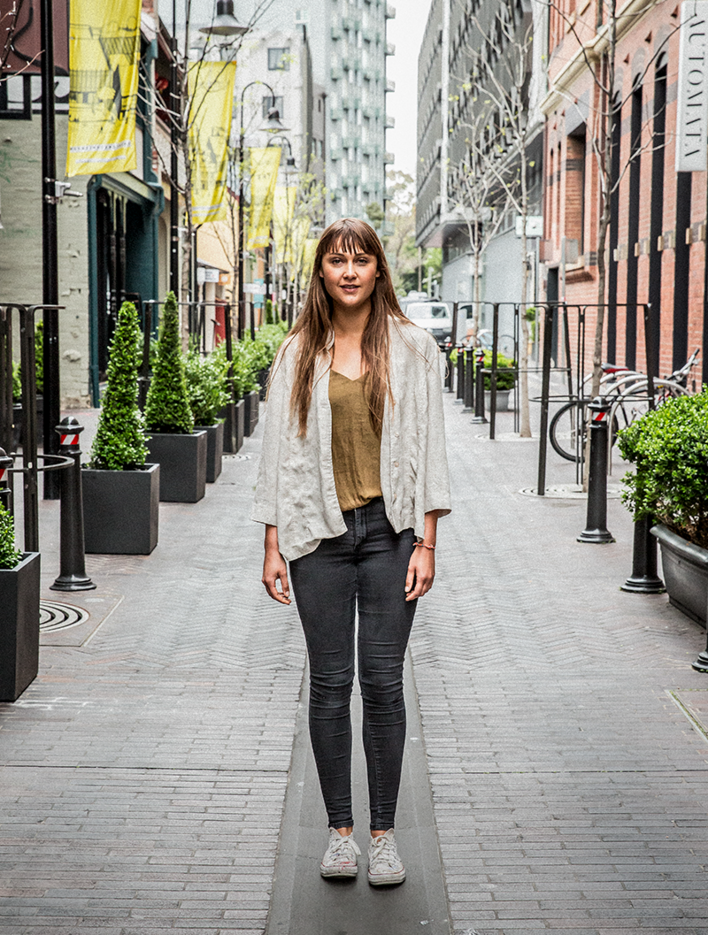
Gemma O'Brien
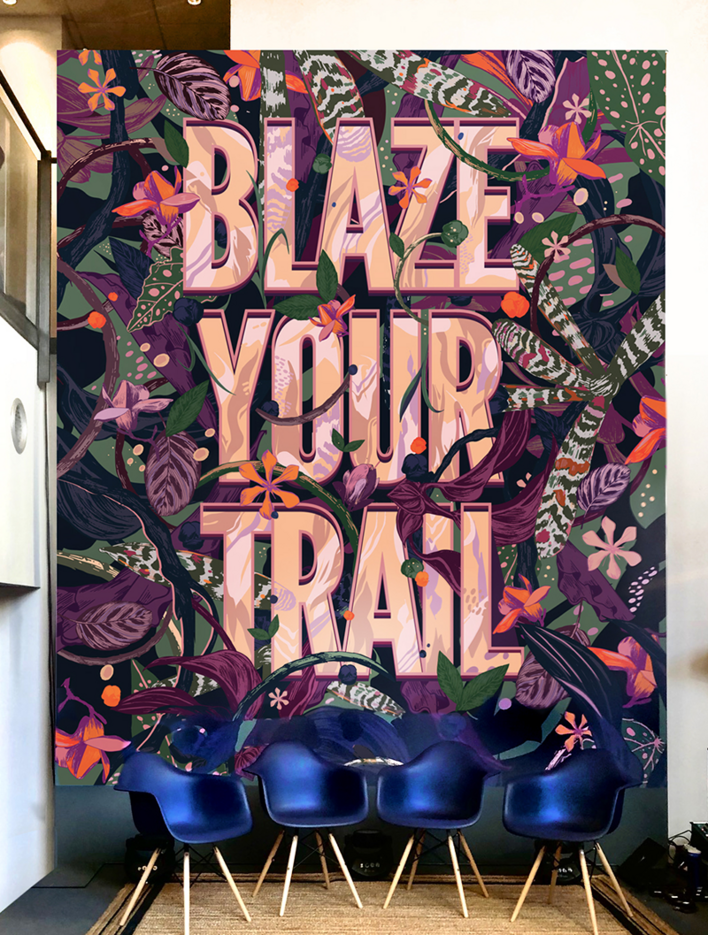
mural 'Blaze your trial'
Gemma O’Brien is an artist, designer and illustrator from Australia.
What does creativity mean to you? “Creativity to me means different things, depending on the context, but generally it’s an approach to things. Even if you don’t have a creative career, I think that creativity is more about experimentation, play, openness and curiosity. It’s an approach that allows all of these things to happen, to finally come up with some kind of end result.”
What’s the best piece of advice you’ve heard and repeated to others? “I’ve heard it in different forms and different ways, but it comes down to this: it has to be about the work first. I think that a lot of young designers are worried about building a following on social media or how they can get to travel and talk about their work. All these things are secondary to the work, and I think that it always has to start with what you create. It’s about finding what you’re really interested in, what makes you unique, about putting your ideas into work and putting in the time, and then everything kind of flows out of that. You can always come back to that at any point in your career. And let that be your guide.”
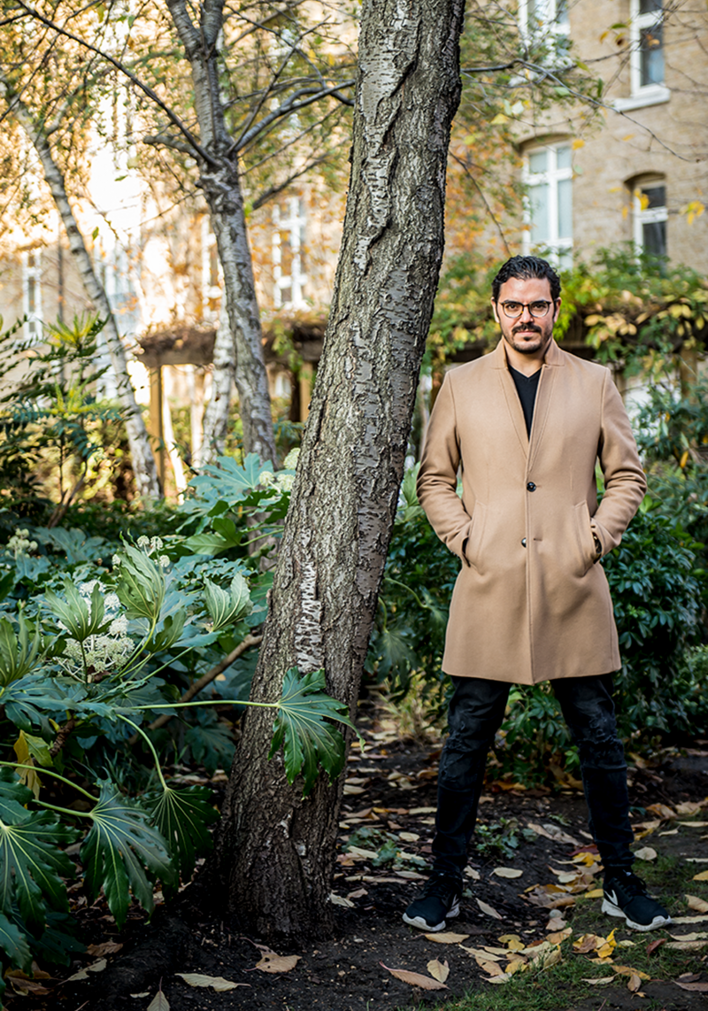
Paul Fuentes

Pig pool party
Paul Fuentes is a graphic designer and artist from Mexico.
What does creativity mean to you? “Creativity is a kind of intelligence that we humans have. I think it is a tool and that everybody is creative in some way. There are different levels of creativity. For me, it’s how unexpected, original or unique the solution to a problem is. But even creating a problem could be creative.”
What’s the best piece of advice that you have ever heard and still repeat to others? “There’s one piece of advice that I got from a maths teacher once when I was a kid. He said: ‘Let’s say you have a problem, then you just need to ask yourself: does it have a solution? If it does, why worry? And if it doesn’t, why worry? Why worry at all? You cannot control everything. And if you can control it, then just control it.’ That’s a piece of advice that makes me feel a little bit more comfortable about making mistakes, failure, and being creative. In the end everything is going to be fine, just go for it. What I would advise to the young creatives out there who are just starting out, is to check out a lot of other artists; you need to read and eat and sleep and dream with other artists. That’s the truth. Copy, imitate, try doing it almost exactly the same way. Without claiming it’s yours, of course, but that’s the way to learn techniques and to push yourself and find out what you can and cannot do. Again, I’m not saying to copy the same print exactly, but to copy the idea. With time, you will come up with a process of your own. But that takes patience and you first need to know your tools and your craft.”
Do you want to read more? You get a discount of 10% when using the code 'FLANDERS DC'. Get your copy of Creatives on Creativity here.
Cookies saved